The Controversy Behind Dry Needling and Why Its Illegal in Some Places
Published Sept. 5 2023, 11:25 a.m. ET
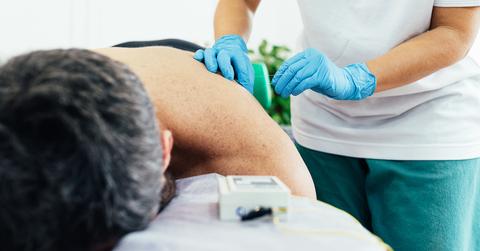
If you have never heard of dry needling, that's understandable. Similar to acupuncture, this treatment can be used to improve pain or movement issues. Although the practice has been around for many years all over the world, there are many people in the U.S. alone who enjoy its benefits.
Despite these benefits, this practice is controversial in the U.S. and even outlawed in some states under certain circumstances. But why is dry needling illegal and how is it regulated? It turns out there are many different factors involved. Keep reading for everything you need to know about dry needling, explained.
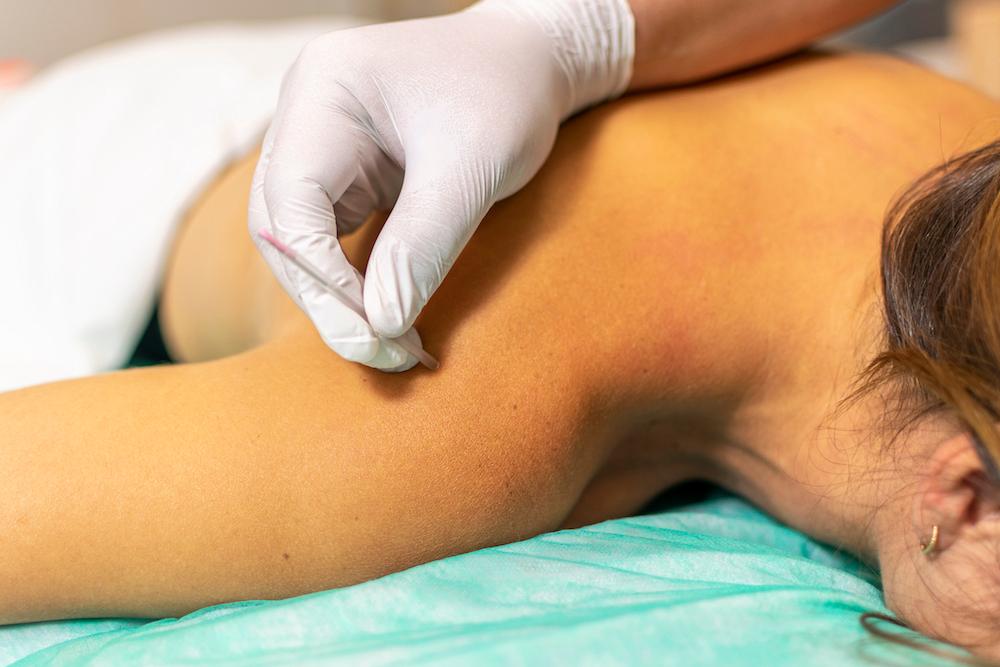
What is dry needling?
According to the Cleveland Clinic, dry needling is a technique that some healthcare providers use to manage pain. Professionals like acupuncturists and physical therapists insert thin needles into the skin next to or into pain "trigger points." These are areas in your muscles where the pain originates from, or they are next to the source.
Because the needles are so small, it doesn't hurt as badly as getting your blood drawn; you might not even feel the needles! But when they are placed next to these trigger points, the goal is to "decrease tightness, increase blood flow, and reduce local and referred pain."
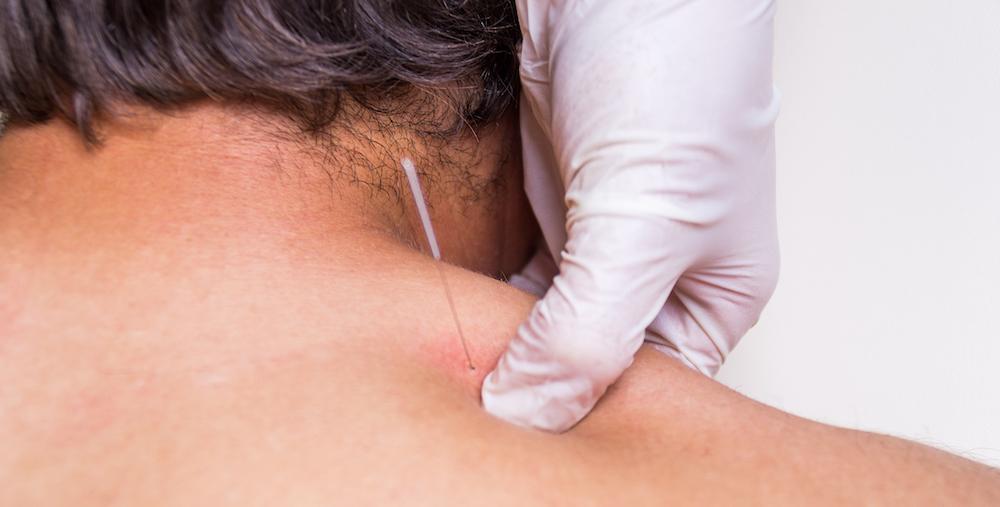
Ultimately, two kinds of needling techniques can be used to alleviate pain. Dry needling gets its name because there's no medicine involved in the process. Trigger Point Injections are similar, where the needles allow medicine to be injected straight into the muscles to combat pain. Despite these benefits, there are some places where the practice is illegal, but not for the reason you think.
Where is dry needling illegal?
There are no states in the U.S. where dry needling is completely outlawed. However, according to the American Physical Therapy Association, dry-needling physical therapists can't perform it in California, New York, Oregon, and Hawaii as of June 2023. Other states, including Connecticut, Massachusetts, Pennsylvania, Michigan, Missouri, Minnesota, and Oklahoma, don't have specific laws about the practice.
Some regulations are in place in states where dry needling is legally allowed. In Florida, for example, any physical therapist wanting to perform the practice must have certain licenses and uphold certain standards.
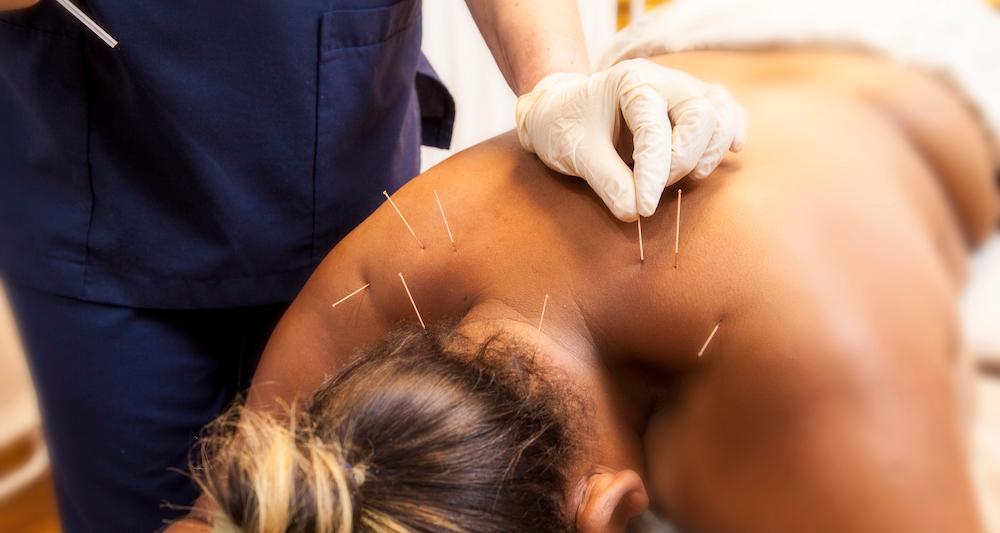
Why is dry needling illegal?
Some physical therapists can use dry needling legally to help their patients with pain. But in some states like New York, it's considered an aspect of acupuncture.
Because of that, you need specific licensing as an acupuncturist to practice dry needling. The requirements for physical therapy and acupuncture differ across the U.S., so many physical therapists would also have to legally become acupuncturists to offer their clients dry needling.
Acupuncturists and physical therapists have long disagreed regarding dry needling. According to Healthline, acupuncturists say that dry needling is part of, if not almost the same as, acupuncture. Acupuncture is a traditional form of Eastern medicine regulated in the U.S. and requires certain kinds of licensure. However, physical therapists view the practice as a form of Western medicine that doesn't require the same licenses.
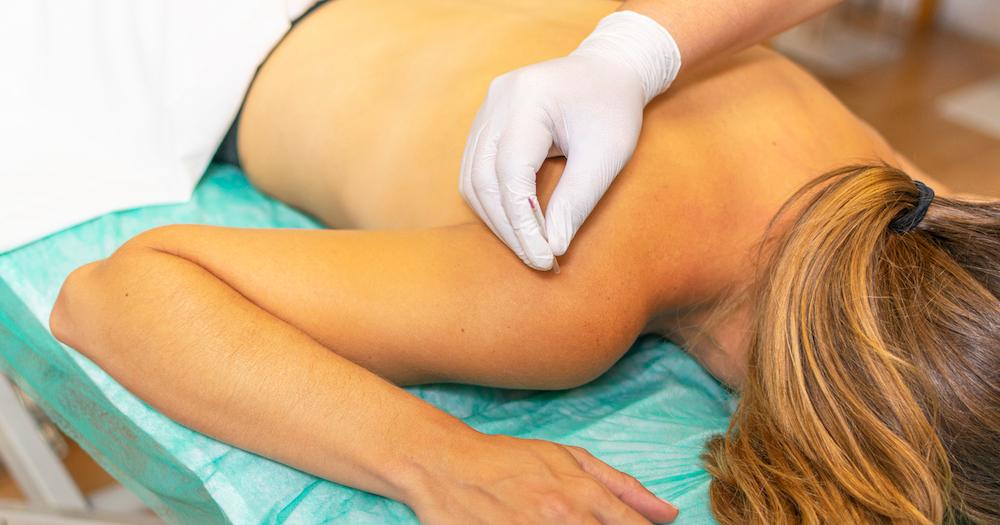
"Dry needling is acupuncture and physical therapists are practicing it without a license and putting patients at risk," acupuncturist Neal Miller said to Healthline. "Dry needling uses trigger points, 90 percent of which are acupuncture points." He says that "little or no extra training" is needed for physical therapists to start dry needling.
On the other hand, Jan Dommerholt, a physical therapist and proponent of dry needling, states that while dry needling and acupuncture have similarities, there are also many differences to account for. "I know nothing about energy flow. That's not what I do as a physical therapist," he said to Healthline. "I come from a motion-of-movement and pain perspective."
Ultimately, if dry needling is helpful to you and your health, there are still plenty of places where its legal.